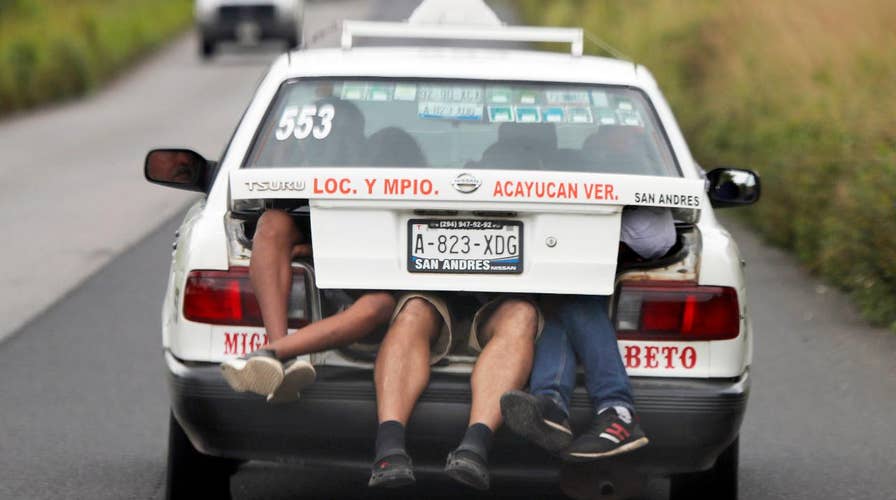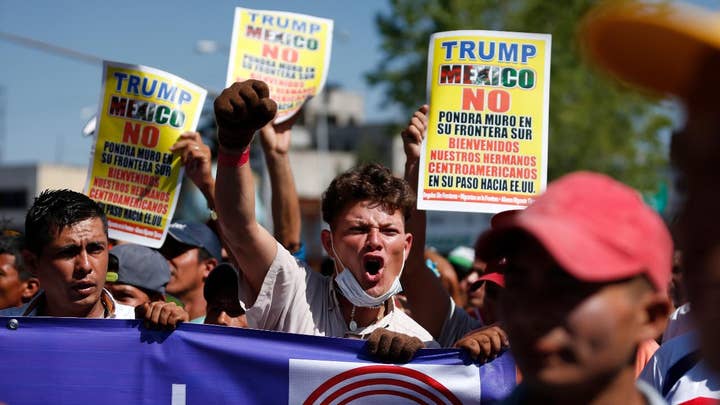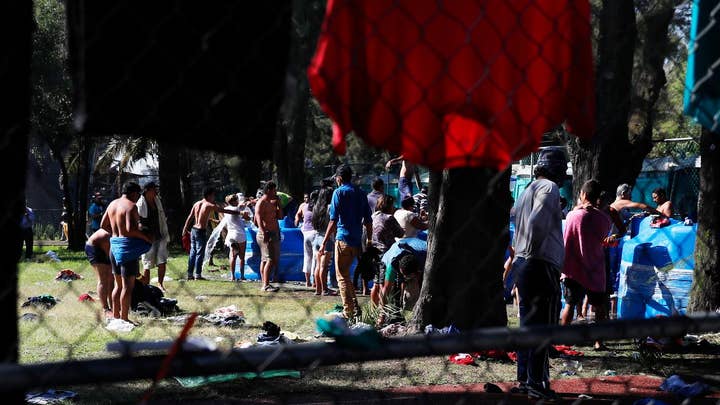Migrant caravan plows on as Trump tightens asylum rules
Caravan departs Mexico City for Tijuana as the White House moves to require asylum-seekers to enter through official ports of entry; William La Jeunesse reports from alongside the group.
A major shot across the bow from President Trump on Thursday may give migrants in the Central American caravan second thoughts about entering the U.S.
The caravan, numbering roughly 6,000, spent one more night in Mexico City before continuing north to Queretaro.
However, in a statement issued jointly by the DHS and DOJ, the administration said migrants will not be allowed to enter the U.S. illegally to file asylum claims, which is how the vast majority of roughly 150,000 Central American families and children entered the U.S. last fiscal year.
Instead, they will be required to enter through official ports of entry, like those near San Diego, Yuma and El Paso. By issuing the new directive, the President is creating a bottleneck by funneling tens of thousands of illegal immigrants to already overcrowded ports.
MIGRANT CARAVAN GETS WITHIN REACH OF BORDER: WHAT HAPPENS NOW?
With long lines, and long wait times adding up to several months, most migrants will have no choice but to turn around or pursue jobs in Mexico. Others, impatient, will try to cross illegally. If caught, they will lose the right to apply for legal entry for 3 to 10 years.
“Our asylum system is overwhelmed with too many meritless asylum claims from aliens who place a tremendous burden on our resources, preventing us from being able to expeditiously grant asylum to those who truly deserve it," said Homeland Security Secretary Kirstjen Nielsen and acting Attorney General Matthew Whitaker in a joint statement.
The administration calls the claims ‘meritless’ since roughly 80 percent are ultimately rejected by an immigration judge. However, because of various court rulings and weak standards of proof, most asylum seekers pass their initial screening interview, providing them permission to live and work in the US until a final ruling. By then, usually about two years, many disappear.
LAWYERS FOR MIGRANT CARAVAN MEMBERS GIVE THEM STARK ADVICE: 'IT'S GOING TO BE DIFFICULT'
The new rule will face legal challenges, but the outcome is not certain, leaving the exodus of Central Americans now in Mexico with a quick decision.
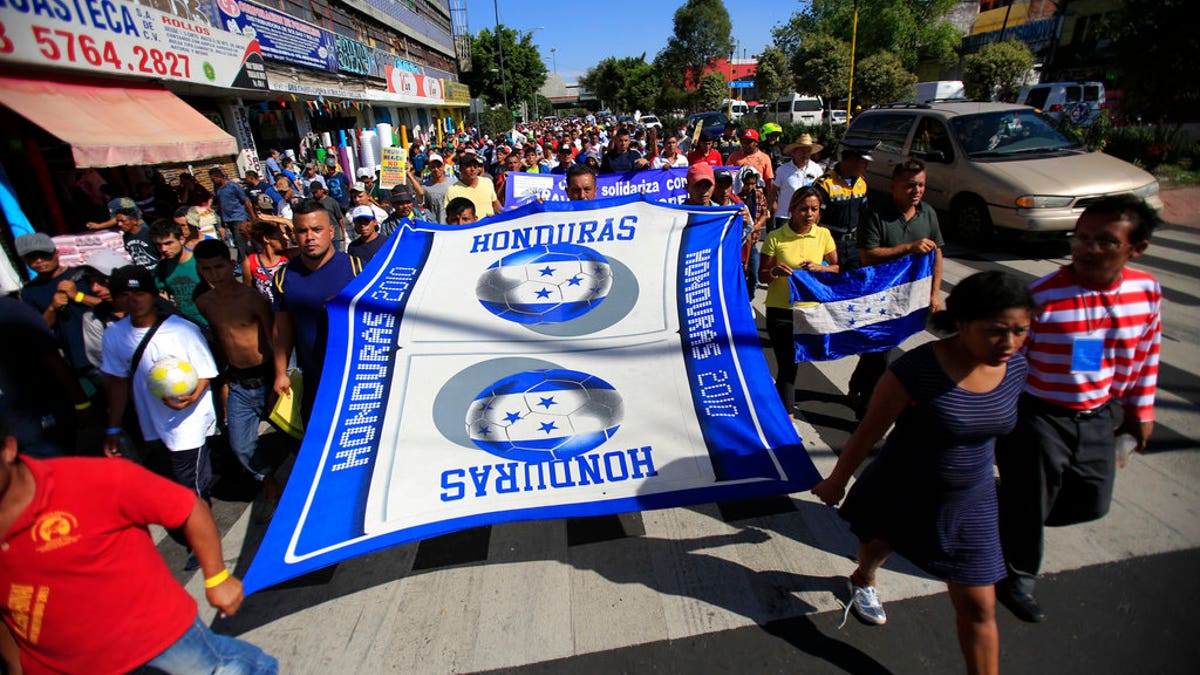
The caravan, numbering roughly 6,000, spent one more night in Mexico City before continuing north to Queretaro.
(AP)
There are 6,000 migrants here in Mexico City and another 4,000 headed north in three additional caravans, according to the International Organization for Migration.
Do they spent another four weeks walking north, praying their odds will improve, or accept offers to stay in Mexico for up to a year, with a legal residency and the right to pursue a job.
Jorge Gomez, 14, is traveling with his 47-year-old father Amilca. Both are from Guatemala.
“We do want to apply for asylum, and we want to leave because there’s too much violence in our country,” Amilca said last week after 10 days on the road and 300 miles north of the Guatemala border.
But after spending two hours with attorneys Wednesday in Mexico City, the family is reconsidering their asylum claim which is based on extortion threats from a local gang.
“They threatened us to give them money or they would kill (Amilca) and all of us,” Jorge said. “He started to pay the money and then they asked for a higher amount - he refused. Then they put a gun to his head that they kill him and his family.”
Jorge said the attorney told them the Trump administration doesn’t consider gang violence grounds of an asylum claim. “She said because of our case, what happened, it is going to be difficult. all we been through is not accepted anymore in the US.”
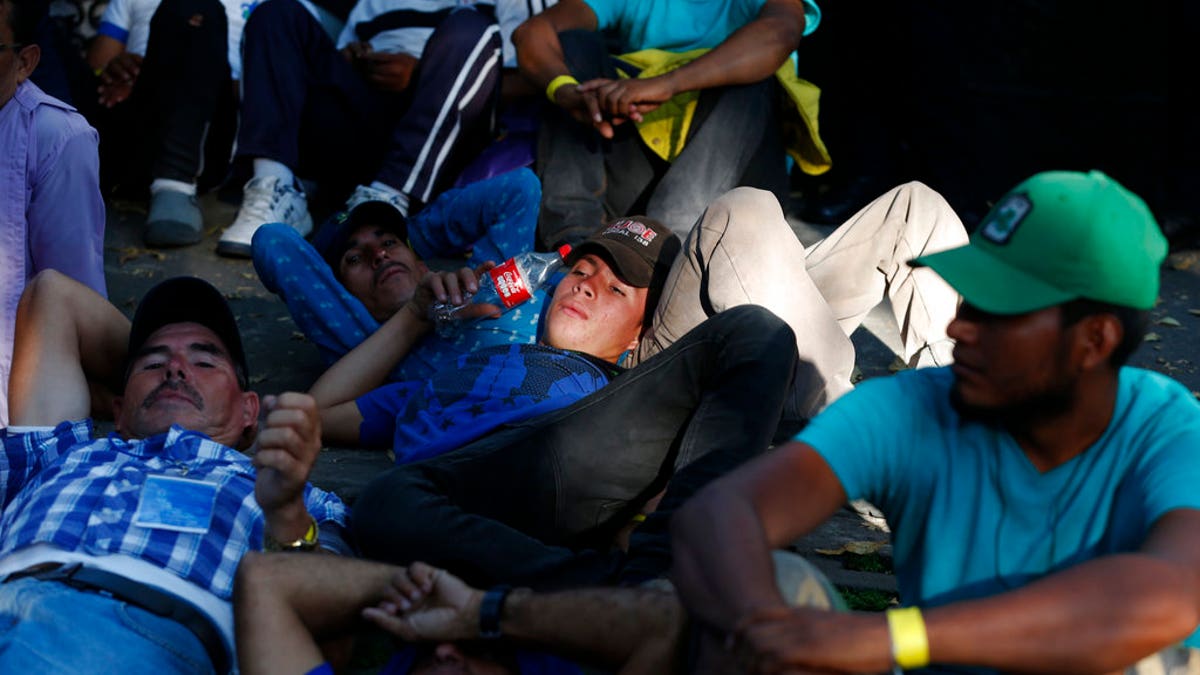
Members of the caravan which has stopped in Mexico City demanded buses Thursday to take them to the U.S. border, saying it is too cold and dangerous to continue walking and hitchhiking. (AP)
Others don’t have a choice. William Blanco will have to cross illegally. He has four children living in Ohio but he’s been deported four times, once for domestic violence and once for driving without a license. the other two involved re-entry after deportation. He spent 14 months in jail on the last charge.
When asked why he was going back, even when he's been deported four times, Blanco replied: “For my kid, for my little girl, every little girl needs a daddy."








































